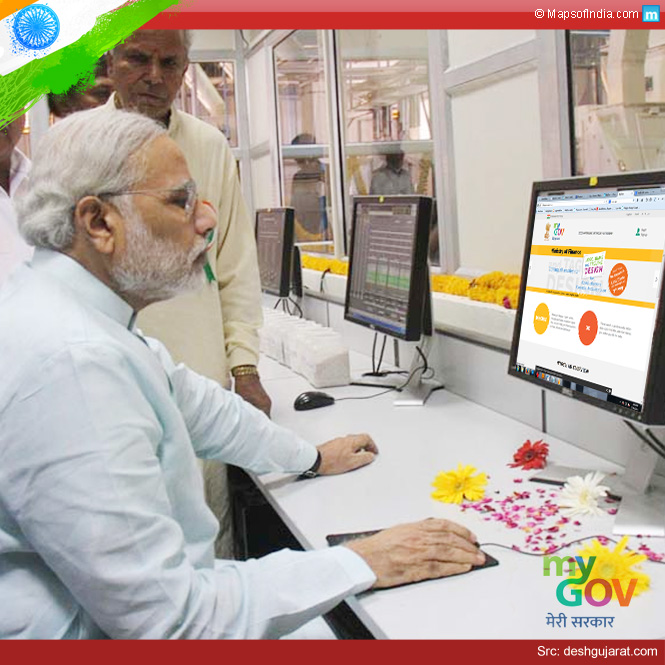The concept and the purpose of initiating anything is always good but when it comes to the management then we are miserable. The same thing has happened to Mid-day Meal Scheme in India. It has been found by the Human Resource Development (HRD) ministry that most of the states are receiving complaints regarding the schemes but no one is acting on these complaints that are filed against the programme. State of Uttar Pradesh has the highest number of complaints (25 complaints) followed by Bihar (16 complaints). Haryana has 11 complaints whereas Madhya Pradesh has 10 and West Bengal has 9 complaints. Most of the complaints are regarding the poor quality of food. Some of the complaints are really serious but yet not attended.
Recently 79 students of a government school in Bhilwara district of Rajasthan were admitted to hospital as they fell ill after consuming mid-day meal. This happened because of the food poisoning caused by a dead lizard found in the food. There are more cases, such as, in 2011, 126 students at a Sarvodaya Vidyalaya fell ill after having a mid-day meal, insects were found in the mid-day meals served in Assam, 42 students fell ill after consuming a mid-day meal at Haryana. Such stories are really annoying and put a question mark on our management system.
The concept of mid-day meal scheme is not new in India as its roots can be traced back to pre-independence era when British administration initiated a Mid Day Meal Programme for disadvantage children in Madras Municipal Corporation in 1925. Like this many such programmes were initiated in different states. In 1953, Government of Uttar Pradesh started another such scheme. Tamil Nadu became the first state in India to introduce a noon meal programme in primary schools. In 1984 this scheme was introduced in Gujarat. From time to time the meal scheme was taken up by different states and later on it was taken up as a national scheme. As per Mid-day Meal Scheme all the children studying in primary and upper primary classes in Government school will get free lunch during working days. As per Government, this scheme is the world’s largest school feeding programme.
As said earlier, the objective of initiating was very good. First and the foremost was to wipe out the ever increasing malnutrition and chronic hunger in India then was to increase the enrolment in the schools, to encourage social mixing of kids at schools, to generate employment for women as cook and organizers. But lack of close monitoring and quality guidelines are creating hurdles.
There are certain critical issues that need to be tackled such as irregularity in serving meals, abnormality in supply of food grains to schools, caste based discrimination in serving of food, poor quality of food, poor coverage under School Health Programme, poor infrastructure especially of kitchen sheds, poor hygiene and poor community participation. Mid-day meal related scams and other such issues further weaken the entire scheme. That is why 42.5% of children under 5 are still underweight. Rate of child malnutrition is higher than most of the other countries in Sub-Saharan Africa.
Government must take steps to find out why the mid-day meal schemes are in such a shape even after allocating huge budget to these schemes. Why proper attention to cleanliness and hygiene is not given while preparing and serving the food to kids?
To keep a check, a mid-day meal monitoring committee has been set up. Government is now focusing to strengthen the committee further so that such incidences can be avoided. The committee will monitor the qualitative parameters such as hygiene. After all, the success of mid-day meal scheme depends upon the quality and how effectively the entire chain is managed.
Read More
‘Stand up India’ Scheme by PM Modi : Highlights, Objectives, Benefits, Process
PM’s Employment Generation Programme (PMEGP) : Details, Benefits, Objective, Eligibilit
Setu Bharatam Project
Pradhan Mantri Ujjwala Yojana
Atal Pension Yojana
MUDRA Bank Yojana
Sukanya Samriddhi Account
Pradhan Mantri Jeevan Jyoti Bima Yojana (PMJJBY)
Pradhan Mantri Suraksha Bima Yojana (PMSBY)
Pradhan Mantri Kaushal Vikas Yojana
Pradhan Mantri Krishi Sinchai Yojana
Pradhan Mantri Surakshit Matritva Abhiyan (PMSMA)
Pradhan Mantri Awas Yojana (PMAY)
One Rank One Pension Scheme
Garib Kalyan Yojana
Digital India Programme
DigiLocker
Atal Mission for Rejuvenation and Urban Transformation
Mahatma Gandhi National Rural Employment Guarantee Act (MGNREGA)
Beti Bachao Beti Padhao Scheme
Pahal Scheme
Jan Dhan Yojana
Skill India Programme
Swachh Bharat Abhiyan: Making India Clean & More
Pradhan Mantri Fasal Bima Yojana (PMFBY)




